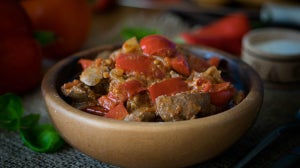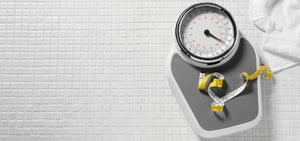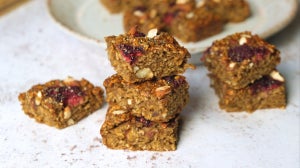
Written by Ben Hardman
As much as blogs and the media focus on losing weight when they discuss fitness, many people with a keen interest in health and nutrition actually want to gain weight. For those who want to create a more impressive physique by building muscle mass, you are almost certainly going to have to put on some weight.
For some individuals, even putting on a couple of kilos can be extremely challenging, yet for others, they just have to look at a takeaway and the scales start to increase. Your body type genetics play a vital role in how fast your body gains weight and muscle.
| Ectomorph | Mesomorph | Endomorph |
| Flat chest & narrow shoulders | Well defined muscles | Soft, round physique |
| Tall & thin | Athletic, well-proportioned body | Undefined muscles |
| Difficulties gaining weight - ‘hardgainer’ | Gains muscle easily | Gains fat easily, hard to lose |
| Fast metabolism | Gain fat faster than ectomorphs | Slow metabolism |
Despite the difference in the body types, if you train correctly and eat correctly, gaining muscle mass and weight is possible for everyone, even the ectomorphs amongst you.
Gaining Weight & Muscle

- Consume excess calories than you expend
- Do heavy weight training
- Eat the correct macronutrients
- Be patient and consistent
- Consider using supplements
Let's take a closer look at each point.
Science: Eat More Than You Burn
Simple science tells us that you will put on weight when you eat more calories than you expend. That doesn’t necessarily mean that you will gain muscle automatically by following this method - you have to incorporate the other tips below to achieve this - but to gain weight and build size you will have to be in calorie surplus.
Calories are units of energy. If you eat more calories than you burn, your body will have an excess of energy, which needs to be stored. Excess calories are first converted to glycogen, a complex carbohydrate, which is then stored primarily in muscle and liver cells. When your glycogen stores are full, the energy gets stored as fat.
If you have just one day of consuming more calories than you burn, you won’t put on weight; your calorie intake will eventually just level out over a week or so. To achieve weight gain you need to consume extra calories steadily over time.
Weight Training - The Correct Way

This doesn’t mean doing 4 sets of 15 arm curls to get a temporary pump. This isolated movement, and others alike aren’t going to get the big muscles firing, which you need if you are serious about putting weight on. Even if you are just looking to put on weight but not achieve a substantial physique, compound movements are essential.
Compound strength training, such as squats, deadlifts, bench press, bent over rows, pull-ups and presses, require a larger range of motion, therefore, recruiting more muscle activation, meaning your big muscles suffer micro-tears, which when combined with excess calories, will grow back bigger - and we all know muscle weighs more than fat. I’ve found that compound sessions always make you feel hungrier after!
Of course bicep curls, calf raises, frontal raises and other isolated exercises can have their place in your weekly routine, just don’t build your sessions around them and always do your compound training at the beginning of your workout (after a warm-up) when you are the freshest to lift heavy.
Macronutrients & Calorie Dense Foods
Gaining weight means you’re going to have to eat big, which undoubtedly means you are going to take on a bit of fat as well. Don’t despair about this, it is fine. You will always be able to shed this slight fat gain further down the line. However, this is not to say that you should be eating the biggest, fattiest burger or pizza every meal of the day. Eat big, but eat as clean as you can. The simplest way to do this is to consume calorie dense foods to circumvent excessive fat gains.
Some of the best calorie-rich foods include:- Peanut butter (an absolute staple)
- Oats
- Red meat
- Tuna
- Eggs
- Extra virgin olive oil- Nuts and seeds
- Avocados

It’s also integral to eat almost constantly throughout the day, as soon as you get up in the morning and then every two hours after that is ideal. If you’re working full time, or at university, the organisation is going to pay off big time as without you’re going to be chasing your tail, and your gains.
To avoid excessive, unnecessary fat gain, I consume a large chunk of my carbs and calories in the morning, which gives your body a chance to burn them during the day. Remember - breakfast (or several breakfasts’) is the king of the meals without a doubt - make sure you stock your body up!
It’s still important to consume calorie-rich foods in the afternoon, but I try to tail them off after 6-7pm.
Be Patient and Consistent
For reasons highlighted in point one, the best way to gain weight is the slow and steady way. You’re not going to pile on 6kg of mass in one week if you did it would probably be highly unhealthy! Building muscle is not a fast process. As with most things patience is a virtue and over time this will definitely pay off for you. Consistent resistance training at a level of intensity is the best way to stimulate muscle growth and gain size, however, do note that it does take a lot of time and a lot of effort.
Making the gym part of your daily routine is the best way to stay consistent and for me, the easiest way is to train befor work - once you’re out of bed it’s fine! Gets your day off to the best start and you’ve no excuse to say you’re tired after you’ve done a long day at work.
It’s not just the gym you need to keep consistent, but you’re diet too. Contrary to the norm, you’re going to have to make sure that you eat enough food every day; under-eating will drastically reduce your gains. Give your body enough fuel to build big!
Knowing it’s going to take a lot of effort beforehand means you’re much less likely to give up when you don’t see results after the first month.
Consider Using Supplements
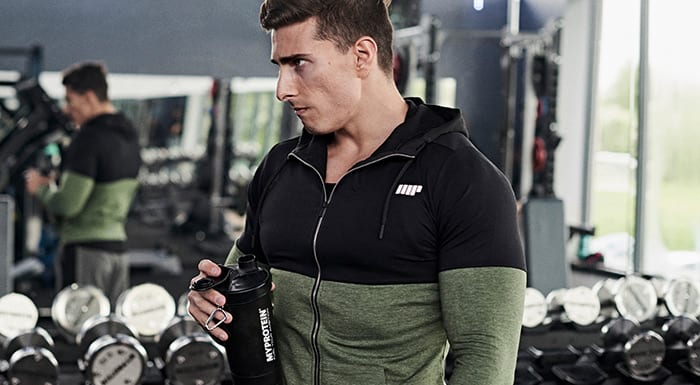
Supplements can do a number of things to help you realise your targets faster and more efficiently. A good weight gainer shake such as Impact Weight Gain for beginners or Hard Gainer Extreme for the more advanced gym goers will greatly help to up your daily calories with over 350kcals per serving.
An additional yet integral supplement, not to mention one of the most researched ever, is creatine. This is a supplement really worth using. It is found naturally in animal products and can be produced in the liver and kidneys, but in small quantities. A remarkably safe product - made solely of three amino acids (arginine, glycine and methionine), it aids athletic performance by playing a key role in ATP production, which gives you energy, and can be used directly as an energy source itself, especially when performing anaerobic, explosive activity e.g. heavy weight lifting. It’s going to play a major role in power output and strength gains, and more strength means denser, bigger muscles, which equals more weight.
A few other supplements you should definitely consider to increase recovery time, maximise muscle gains and improve the overall health of your body, which will keep you fit and allow you to train more, include:
? Glycine - a whole host of benefits. Can help improve sleep quality due to its role as a neurotransmitter present in the brain and Central Nervous System and help build lean muscle mass via protein synthesis.
? BCAAs - can reduce muscle fatigue and speed up recovery.
? Multivitamins - a ‘nutritional insurance’ to make sure your body is getting all the vitamins and minerals it requires
? Cod Liver Oil & Omega 3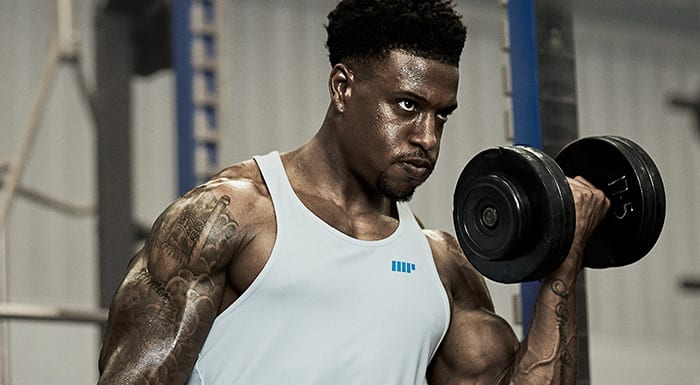
Concluding the Principles of Weight Gain
My personal goal in April 2015 was to gain muscle and weight. I came back from six months of travelling and weighed 73kg. By Christmas I had gained 16kg, around 2 ½ stones, by implementing the four points above and supplementing my diet primarily with Hard Gainer Extreme, creatine and the five other supplements above. I may be lucky in that I am a mesomorph but the same principles apply for anyone.
On other aspect that I haven’t covered is still vital is rest.
If you are serious about gains then you need rest, and there is no better rest than SLEEP. The least you should be getting is 6 hours a night for your body to be able to recover, repair those micro-tears in your muscle fibres from your workout and build stronger, bigger muscles. Of course, for your body to do this efficiently and effectively, it needs sufficient protein and energy, which is why it is key to consume a slow releasing protein source just before bed. If you haven’t got any micellar casein whey to hand, I find that a glass of milk and a couple of spoonful’s of peanut butter to be a great alternative. This also sets you up perfectly for a morning workout.
Now rest doesn’t always mean having three days off the gym every other week. I train five days a week, every morning before work, and make sure my training is sufficiently planned that I am not over-training certain muscle areas. Big muscles, such as your quads, can take several indirect sessions in a week. For example, alongside your squat-based leg session, you may (and should) also do deadlifts, push presses, farmers walks and squat cleans within the same week.
Sometimes rest altogether from the gym is absolutely necessary if your body is exhausted. The best policy is always to listen to your body. When you are feeling exhausted but still want to take part in some exercise, I find a long, slow-paced incline walk works wonders. Even a slow-paced 10km row can be highly therapeutic, something which first of all sounded horrendous to my fast-twitched packed body. However, you do really get into it!
There you are - 5 top tips to help you gain the weight you’ve been craving. Happy training and, maybe more importantly, happy eating!Bannai, Makoto, Nobuhiro Kawai, Kaori Ono, Keiko Nakahara, and Norobu Murakami. The Effects of Glycine on Subjective Daytime Performance in Partially Sleep-Restricted Healthy Volunteers. Ncbi.nlm.nih.gov. N.p., 18 Apr. 2012. Web. 21 July 2016.
Our articles should be used for informational and educational purposes only and are not intended to be taken as medical advice. If you're concerned, consult a health professional before taking dietary supplements or introducing any major changes to your diet.



